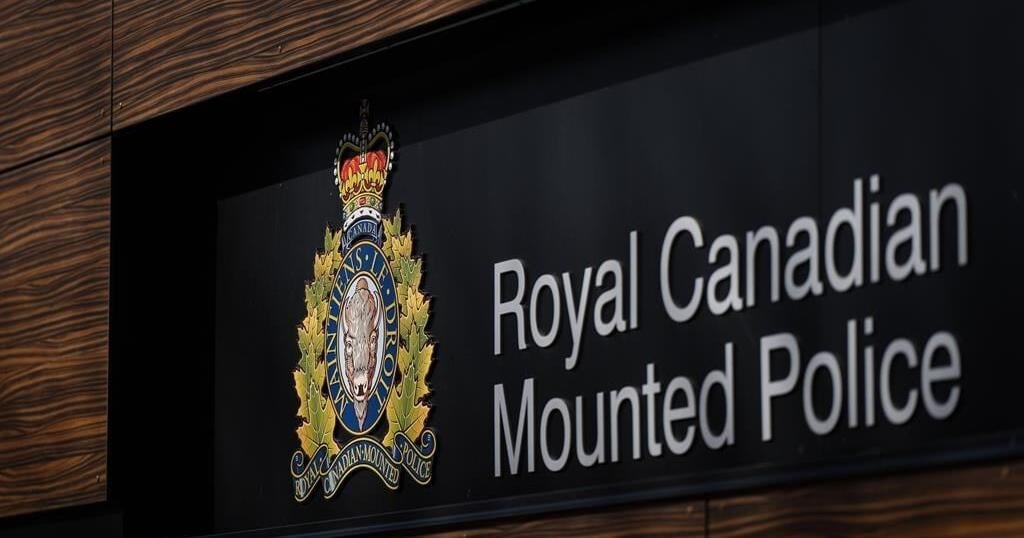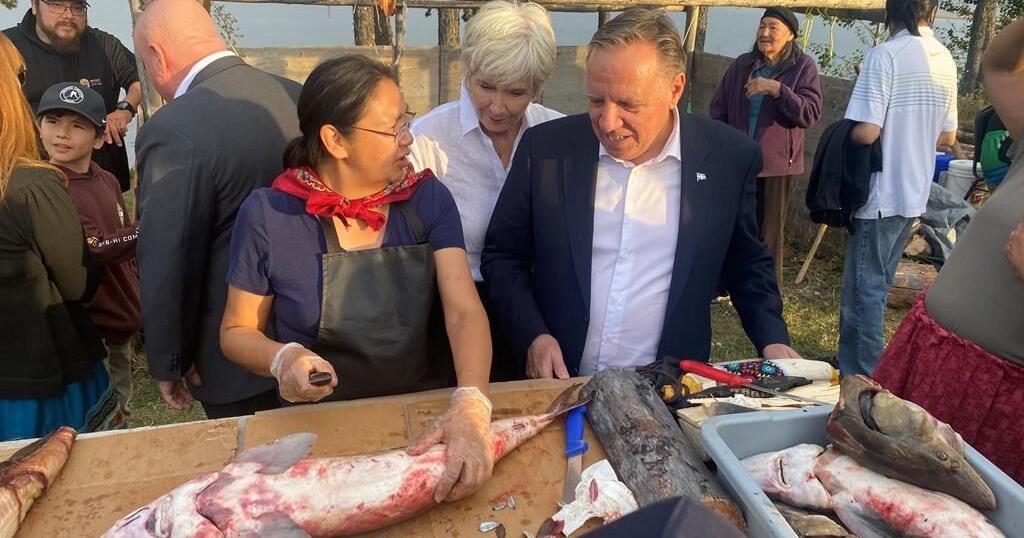What began as a vacation to visit relatives in Israel has become a desperate bid to get home for a Canadian family now stuck there amid deadly fighting between Israel and Hamas.
Rus Benco, his wife and their two young children — aged 10 months and two years old — had been in the town of Tiberias for three weeks when Hamas militants launched a surprise incursion from Gaza into Israel on Saturday.
“It’s terrifying, and we’re thinking (about) how to get out,” Benco told CTVNews.ca in an interview over Zoom on Tuesday. “We didn’t even know how serious it would be at the beginning, but I think it’s becoming clearer and clearer that probably the best strategy is to leave the country now, because it doesn’t seem like it’s something that is going to quiet down in the very near future.”
The family is scheduled to return home to Pickering, Ont., on Oct. 30 but said they don’t feel safe staying until the end of the month. Although several hours by car from the fighting near Gaza, Benco said he worries they could be in danger if fighters from Lebanese militant group Hezbollah try to invade Israel from the north.
Despite his efforts, Benco has not been able to secure a flight out of Israel earlier than Oct. 16, and he’s worried that flight will be cancelled.
Air Canada joined other airlines on Sunday and temporarily cancelled all flights to Tel Aviv, ending the only direct commercial air links between Israel and Canada via Toronto and Montreal.
After days of pressure to arrange flights for Canadians who are stranded in the region, the federal government announced Tuesday evening that they will begin that process.
“We are planning to begin the assisted departure of Canadians from Tel Aviv in the coming days, with the help of an aircraft from the Canadian Armed Forces,” Foreign Affairs Minister Melanie Joly said in a post on X, formerly Twitter, which was captioned, “My message to Canadians in Israel, West Bank and Gaza.”
“These flights will be available to Canadian citizens, their spouses, and their children; as well as Canadian Permanent Residents, their spouses and their children. We are also working on additional options for those who cannot reach the airport in Tel Aviv.”
Joly said that more details would be available on Wednesday, but that affected Canadians can start registering now with Global Affairs Canada.
Benco had been scheduled to fly on his own from Tel Aviv to Europe for a short trip on Oct. 13, but as with so many other flights through Tel Aviv, it was cancelled.
“So we’re looking for various options to get out, and now we have two tickets, one for the 16th and another one for the 30th,” he said.
For now, Benco and his family will hold on to both reservations and hope the earlier flight isn’t cancelled. In the meantime, Benco said he has reached out to the Embassy of Canada to Israel twice for guidance in the past 36 hours but that he hasn’t received any useful information.
“I just get a blank answer saying to shelter in place, try to look for other airlines and listen to the local government directions, so there hasn’t been really anything to signal that there is a strategy to take care of the Canadians,” he said. “I think some type of messaging would be good to know whether there is a strategy or not, in case things intensify.”
ESCALATING VIOLENCE
Hamas militants stormed into Israel on Saturday, killing civilians and soldiers alike and taking at least 150 people hostage, including children and the elderly, according to the Israeli government. A combined total of at least 1,800 have died on both sides(opens in a new tab) following reprisal airstrikes from Israel on the blockaded Gaza Strip, flattening residential buildings and displacing thousands of civilians. Hamas has been declared a terrorist group by Canada and many other western nations.
Among the dead are two Canadians who’d been attending a desert music festival(opens in a new tab) in Israel.
Joly told CTV News on Monday that at least three Canadians are reported missing, but would not confirm if they had been kidnapped by Hamas.
“We’re in touch with families,” she told CTV News’ Power Play. “In the context of potential hostage-taking… we don’t want to increase the value of these hostages or put their lives even more at risk.”
Joly also responded to reports that Canada’s embassy in Tel Aviv was closed or maintaining holiday hours during the Thanksgiving weekend, making it difficult for Canadians to get consular assistance.
“I made sure that they were open,” Joly said. “The team has been working since the beginning of this terrorist attack by Hamas, which of course we condemn, since Saturday.”
According to Global Affairs Canada, there are more than 3,234 Canadians registered in Israel and 478 Canadians registered in Palestinian territories. Canada has embassies in Israel and in Ramallah, the West Bank’s de facto administrative capital.
The agency said Tuesday that they had responded to 1,234 enquiries since Saturday.
“Global Affairs Canada is aware of one confirmed death of a Canadian and reports of a second death, as well as three other Canadians who are reported missing,” the agency stated.
It’s unknown how many Canadians might be stranded in the Gaza Strip currently, as Israel ordered on Monday for the region’s electricity to be cut off, complicating communication going in and out of the region.
Joly said Canada has increased capacity at the embassies in neighbouring Egypt, Lebanon and Jordan to assist in the crisis.
Countries such as Poland, Italy and Brazil have shared plans to send military evacuation flights for their citizens. Canada will now be following suit after days of uncertainty.
On Monday, Joly indicated that while they were looking at other options, Canadians caught up in the crisis were being advised to “shelter in place,” stating that it could be dangerous for Canadians to amass at airports.
Prior to Joly’s Tuesday announcement that flights would be arranged, the Conservative Party of Canada had called on the federal government to immediately commence evacuation flights(opens in a new tab) for Canadian citizens stranded in Israel.
Joly stated in her Tuesday announcement that Canadians could register for a flight out of the region by contacting (+1) 613-996-8885 or sos@international.gc.ca.
“This is how we will share information directly with you,” she wrote.
It’s not yet clear how Canadians trapped in the Gaza Strip, which is under a strict blockade, will be able to access the assisted flights out of Tel Aviv.
Global Affairs Canada(opens in a new tab) is urging Canadians to avoid all non-essential travel to Israel, the West Bank and Gaza as the fighting continues.
STRANDED AND SCARED
Canadians Mike Safi and Silvana Nematallah are currently stranded at a hotel in Jerusalem. With their original flights to Canada cancelled, they are now hoping to return home later in the week via Turkiye and England.
“It’s been a very harrowing four days,” Nematallah told CTV News Channel on Tuesday. “Yesterday was the worst day. We were going down to the bunker when we heard the sirens many, many times in the day, so that was very, very scary.”
Safi says he spent 20 minutes waiting for consular help on the phone, and that he was advised to fill out an online form and stand by for more information.
“That was four days ago; until now, no one got back to me,” Safi said. “I’m just really disappointed, even appalled, at the lack of help that I received from the embassy.”
Safi and Nematallah said they booked their new flights themselves and were hoping that Canada could at least arrange seats on another country’s evacuation flights.
“We need a pathway out,” Nematallah said. “We need to leave before things continue to escalate and become extremely dangerous.”
The announcement that there will be assisted flights out of Tel Aviv for Canadians may be a relief for Canadians trapped in the region, but it comes after days of families grappling for other solutions, sometimes at a heavy price.
That’s the situation that Andrea Yampolsky’s family found itself in.
Speaking to CTVNews.ca on Tuesday prior to the announcement of assisted flights, Yampolsky shared that she has spent thousands of dollars scrambling to find a way out of Israel for her elderly mother and her sister.
Yampolsky’s sister and their 86-year-old mother had been in Israel to visit family and were staying with Yampolsky’s sister-in-law at her home in Ra’anana in the Central District of Israel when the attack happened.
“They were scheduled to come home today. And, of course, Air Canada cancelled the flight,” Yampolsky said.
Over the past few days, Yampolsky has helped her mother and sister book more than three flights, only to see cancellations continue to roll in.
Their hopes were pinned on their backup option, a flight set to leave on Sunday, but then Yampolsky said her sister received an announcement from the Israeli government telling residents they should be preparing enough food and water for several days in a bomb shelter.
“My mother’s 86,” she said. “So I said, ‘I don’t want to take the risk of you being stuck in a bomb shelter for three days. We have to try to get you out.’”
They finally booked a flight on a low-cost carrier that would take them to Istanbul and then to Toronto on Thursday. Her sister lives in Toronto, so their mother will be able to stay with her there before flying home to Yampolsky in Montreal, she explained. But booking the flights has added up.
“All that is also additional thousands and thousands,” she said. “Like, we’re talking an extra five to six thousand dollars per person.”
Air Canada is refunding some of the ticket which was originally cancelled, but it’s not the money that bothers Yampolsky so much as the feeling of being abandoned by Canada for the past few days. Although her mother and sister are currently in a region where they are not near the fighting, it’s been a harrowing experience, she said.
“I’m completely stressed out of my mind,” she said.
The Canadian Armed Forces currently contributes to three multinational security missions in the region and has a presence in Jerusalem, Lebanon, Egypt’s Sinai Peninsula and the Golan Heights between Israel and Syria.
Around 90 military and civilian personnel are deployed across the affected regions as part of these three missions, including personnel stationed at the Tel Aviv embassy.
“We can confirm that all (Canadian Armed Forces) members are safe and accounted for,” a defence spokesperson told CTVNews.ca. “We also currently do not anticipate a requirement for Canadian military assistance from Israel.”

Source link
Related























